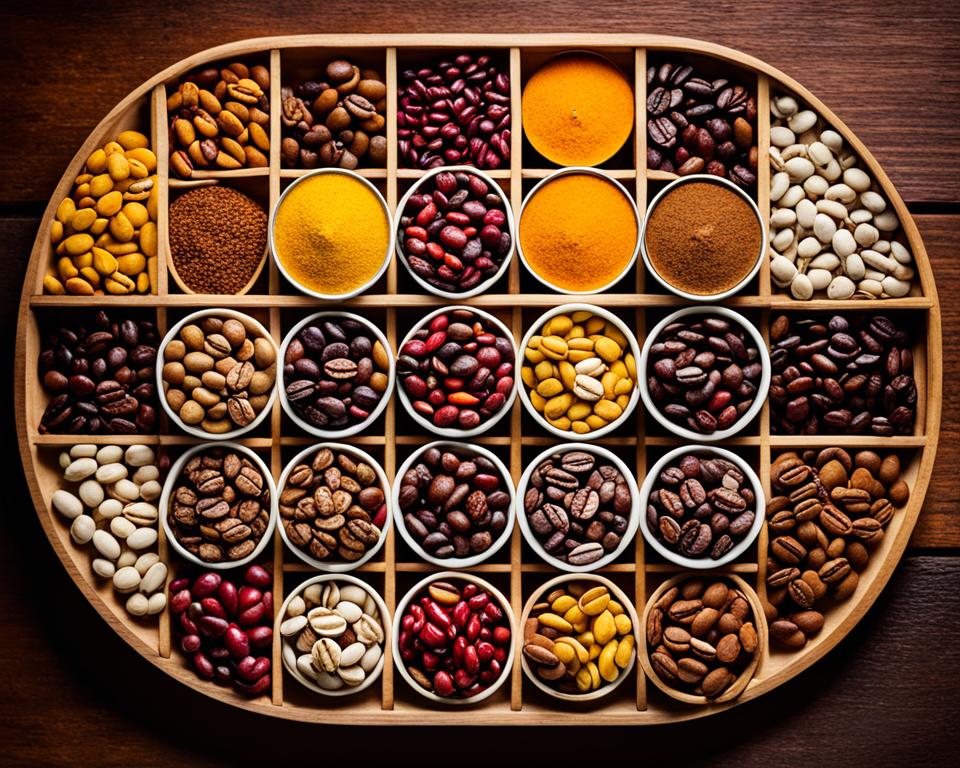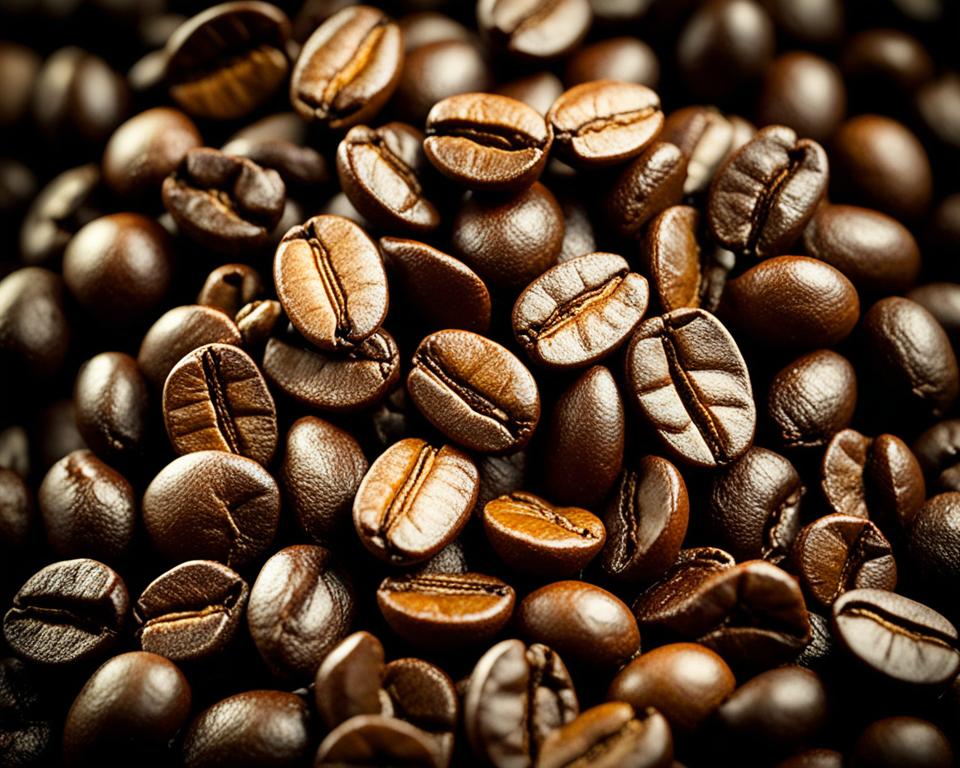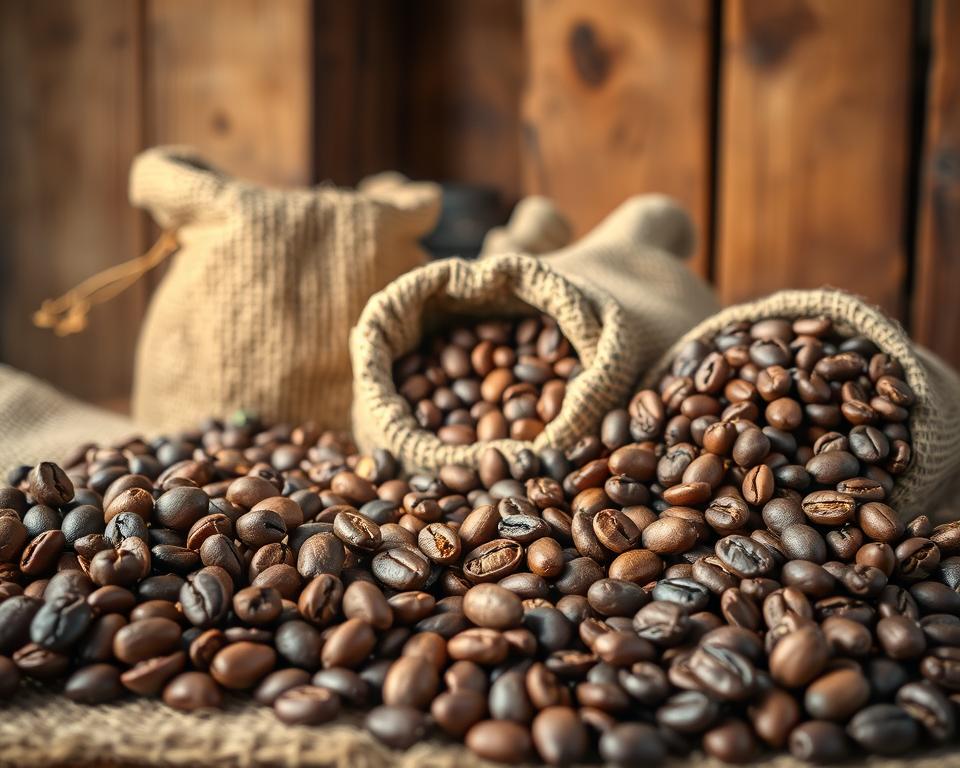Have you ever wondered if freshly ground coffee beans really make a difference compared to pre-ground coffee? It’s a question that many coffee lovers grapple with every day. Being an avid coffee drinker myself, I’ve often pondered about the ultimate game-changer in coffee brewing: coffee beans or ground coffee.
From my personal experience, I’ve noticed profound differences in taste comparison and overall coffee quality based on the type of coffee I use. This article will unravel the secrets behind these two options, evaluating their flavor, freshness, convenience, and cost to help you decide which one is the true winner.
Whether you’re a coffee connoisseur or just starting your caffeine journey, tag along as we delve into the nuances of coffee beans and ground coffee. Let’s explore how each impacts your brewing experience.
The Basics of Coffee Beans and Ground Coffee
When it comes to our beloved cup of coffee, understanding the differences between whole coffee beans and ground coffee is essential. Let’s break down the basics of each one to get a clearer picture.
What Are Coffee Beans?
Whole coffee beans are the seeds of the coffee plant. Within the world of coffee, there are various types of coffee beans, with Arabica and Robusta being the two most popular.
Arabica beans are usually smoother in taste, whereas Robusta beans often have a stronger and more bitter flavor. The journey of coffee beans starts with harvesting and continues through coffee processing, where they undergo drying, milling, and roasting to become the aromatic beans we know and love.
What Is Ground Coffee?
Ground coffee, on the other hand, involves whole coffee beans that have been through coffee grinding. The grind size can vastly influence the flavor and type of brew.
For example, a fine grind is perfect for espresso, while a coarse grind is better suited for a French press. Coffee processing impacts how well the flavors are extracted during brewing, and different grind sizes are tailored to optimize this extraction process.

Understanding the fundamentals of whole coffee beans and ground coffee can enhance our appreciation for the various brewing methods and the nuanced flavors they produce.
Whether you prefer the robust, complex notes of freshly ground beans or the convenience of pre-ground coffee, both have their own unique appeal and serve different needs.
Flavor and Aroma: Coffee Beans vs Ground Coffee
Comparing coffee beans to ground coffee always sparks a lively debate among coffee enthusiasts. When it comes to flavor profiles and coffee aroma, the discussion becomes even more interesting.
Let’s explore the key flavor profiles and aroma differences that set coffee beans and ground coffee apart.
Flavor Profiles
One of the standout aspects of coffee beans is their diverse flavor profiles. Coffee tasting notes often highlight how a bean’s origin and roasting process contribute to its unique flavors.
I once brewed a cup of coffee from freshly ground beans, and the richness was incomparable. It vividly showcased nuanced flavors that pre-ground coffee often lacks.
Whole beans tend to retain their complex flavors longer. Grinding beans right before brewing can result in a more vibrant and robust cup of coffee.
Conversely, pre-ground coffee may lose some of its flavor complexity over time due to exposure to air and light, impacting its overall flavor preservation. You can read more about the differences between roasts here.
Aroma Differences
The aroma of freshly ground coffee is one of the most delightful experiences for any coffee lover. The best coffee aroma typically comes from whole beans freshly ground just before brewing.
When I first experienced the coffee scent from freshly ground beans, it was an eye-opener; the scent was bold and intoxicating.
Studies suggest that ground coffee’s potent aroma tends to dissipate faster than that of whole beans. This is because coffee beans act as natural protectors, preserving their oils and maintaining a robust aroma for a longer period of time.
Therefore, to enjoy the best coffee aroma, it’s often recommended to grind the beans just before brewing, ensuring optimal flavor preservation and the most delightful coffee scent.
Freshness: The Ultimate Factor
Preserving coffee freshness is key in enjoying a perfect cup. Fresh coffee not only tastes better but also provides a richer aroma. Many coffee enthusiasts, including myself, consider it the gold standard.
Why Freshness Matters
Fresh coffee stands apart due to its vibrant flavors and aromatic complexity. When coffee is ground, it faces a higher risk of oxidation and moisture absorption, which leads to a quicker degradation of quality.
Storing coffee properly can extend its shelf life and maintain that fresh flavor longer.
Experts agree that coffee freshness decreases dramatically once the beans are ground because the larger surface area exposed to the air accelerates oxidation.
That’s why it’s crucial to grind only what you need for immediate use.
How to Maintain Freshness
Maintaining coffee freshness involves taking several key steps. First, always store coffee in an airtight container to protect it from air and moisture. Secondly, keep your coffee in a cool, dark place away from direct sunlight. Light exposure can deteriorate the beans and reduce the shelf life of coffee.
For those of us who cherish that fresh coffee taste, investing in whole beans and grinding them just before brewing is recommended. Additionally, purchasing coffee in small quantities ensures you consume it while it’s still at its peak freshness.
- Use airtight containers
- Store in a dark, cool place
- Buy in small quantities
- Grind just before use
By following these simple strategies, you can significantly extend the life of your coffee and enjoy that fresh, just-roasted flavor in every cup.
Are Coffee Beans Better Than Ground Coffee?
When it comes to making the best coffee choice, everyone has their own coffee preferences. Freshly ground coffee beans are often praised for their rich flavor and aroma.
The coffee bean benefits include a more robust and complex taste that many coffee enthusiasts love.
On the other hand, the convenience of ground coffee cannot be overlooked, especially for those who lead busy lives. It’s quicker and saves time since you don’t need to grind your beans.
For some, this ease of use is a significant factor.
Personal experience and tastes play a huge role in deciding the best coffee choice. Many coffee lovers appreciate the ritual of grinding their beans fresh, while others prefer the simplicity and speed of pre-ground coffee.
Both options have their pros and cons.
I’ve heard quite a few testimonials from baristas who swear by whole beans for the ultimate coffee experience. Yet, there are also many who vouch for the practicality of ground coffee.
Balancing taste with convenience ultimately boils down to what fits into your daily routine and satisfies your coffee preferences.
Convenience and Ease of Use
When it comes to coffee preparation, convenience plays a huge role, especially in our fast-paced lives. With easy coffee brewing methods, it’s possible to enjoy a great cup without dedicating too much time.
Starting with whole beans means you’ll need some time and tools: a grinder, scale, and possibly even a tamper if you’re using an espresso machine. Grinding your own beans does offer fresher results, but it might not be the best quick coffee option if you’re racing against the clock in the morning.
On the other hand, pre-ground coffee can be the savior for those in a rush. No need for grinding; just scoop, brew, and you’re good to go. This is where user-friendly coffee really shows its strengths, letting you skip steps without major sacrifices in flavor.
To make the process even smoother, some personal tips include pre-measuring out coffee doses the night before or using single-serve coffee makers like a Keurig or Nespresso.
These machines offer quick coffee options without compromising much on taste.
Ultimately, balancing convenience with quality is key. For those of us who cherish our morning brew but have limited time, user-friendly coffee systems can provide an efficient and enjoyable solution.
Cost Considerations
When deciding between coffee beans and ground coffee, cost is a key factor for many. Let’s look at the different aspects of expense involved.
Cost of Coffee Beans
Purchasing whole coffee beans can sometimes appear more expensive at first glance. However, you’re often paying for a higher-quality product. Brands like Blue Bottle or Stumptown show that investing in coffee beans can lead to a richer, more flavorful experience.
Additionally, buying in bulk can offset the initial cost, making it a smart move for those on a coffee budget.
Cost of Ground Coffee
Ground coffee, on the other hand, is generally cheaper up front. Brands like Folgers and Maxwell House offer affordable choices that fit most budgets.
A price comparison reveals that pre-ground coffee can save you time and money. Yet, it often lacks the freshness and complexity found in whole coffee beans.
Though it is convenient, it may not provide the same long-term value.
Long-Term Savings
When weighing long-term savings, consider the equipment cost and time investment. Grinding your own coffee requires a grinder, which is an added expense.
But this investment in coffee preparation can pay off with superior taste and aroma over time. A detailed price comparison shows that the right economical coffee options can be more cost-effective for your coffee budget in the long run.
Using cost calculators can help you visualize the financial benefits of each option. By investing in coffee wisely, you can enjoy a premium coffee experience without breaking the bank.
Can Green Coffee Beans Be Used for Brewing Instead of Regular Coffee Beans?
Can green coffee beans be used for brewing instead of regular coffee beans? Absolutely! Many coffee enthusiasts are starting to explore the benefits of green coffee beans. They offer a unique flavor profile and contain higher levels of chlorogenic acids, which can contribute to health benefits and a different taste experience.
Conclusion
After weighing the pros and cons of coffee beans and ground coffee, it’s clear that there’s no one-size-fits-all answer. The choice ultimately comes down to your personal coffee decision-making process.
Whether you cherish the bold, fresh flavors of freshly ground beans or prefer the convenience and speed of pre-ground coffee, your personal coffee choice is what matters most. Each offers its own unique experience and advantages.
Freshness remains a crucial factor. As we discussed, whole coffee beans typically maintain their flavor and aroma longer than ground coffee. However, ground coffee wins in terms of convenience.
If you’re always on the go, having pre-ground coffee ready to brew can be a game-changer. Consider your lifestyle and taste preferences when making your decision.
In terms of cost, both options have their own budgetary implications. While whole beans might seem pricier up front, buying in bulk can lead to long-term savings.
Ground coffee often comes at a lower initial cost, but it might lack the fresh, rich experience of home-ground beans. Your ultimate coffee experience is a balance of taste, convenience, and budget.
Don’t be afraid to experiment with both to find your ideal cup. Coffee is an adventure that invites us to explore and enjoy every sip. So, grab your favorite mug and start your coffee journey, embracing the joy of coffee in whatever form you choose.




